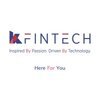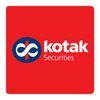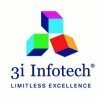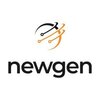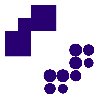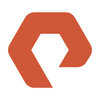
Engaged Employer
i
This company page is being actively managed by
Equiniti Team. If you also belong to the team, you
can get access from
here
Equiniti
111 Equiniti Jobs
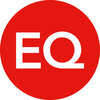
Staff Engineer
Equiniti
posted 16d ago
Job Role Insights
Fixed timing
Key skills for the job
Job Description
The staff engineer role is a senior technical role within the team. With a keen interest in technology, innovation and collaboration they keep their knowledge current, continuously seeking to design, build and deliver better than yesterday. Lead Engineers seek to create industry-leading solutions in a way that moves the products forward. They are keen to explore how advances in technology might support on-going continuous improvement and provide input to the department strategies, practices, toolkits and processes.
Professional Responsibilities - SFIA Responsibility Level: 4 - Enable
- Ensure you adhere and supporting your Squad in adhering to the over-arching Software Development Lifecycle and Agile TOM aligned to your Home
- Develop and maintain software development processes, standards, and best practices to ensure consistent delivery of high-quality software products
- Promote engineering excellence and quality through appropriate use of analysis tools, control gates and peer reviews by inculcating news ways of thinking to improve design, productivity, and quality
- Be involved with and promote the evaluation of emerging technologies, models, methods etc. on an ongoing basis to enable competitive differentiation and strengthening of existing product technology; drive adoption within your squad as required
- Foster optimisation of the engineering lifecycle through a systematic knowledge management and continuous learning process to better enable the organization to meet market and client needs
- Mentor and guide all engineers within your home and assist with technical challenges as needed
- Show a sense of ownership & pride within your squad and the wider home to deliver high quality work and Institute a self-directed and high-performance culture in the team
- Involve yourself in the development of a strong talent pipeline throughout your wider home by helping the Manger Engineer in hiring, internal movements, succession planning, talent reviews etc.
- Take an interest in and where possible show advocacy for the reduction in technical debt across the estate and mission, supporting the Manager Engineer and Product to prioritise the reduction of technical debt appropriately
- Show an interest in articulating the technical roadmap, the overall vitality of the product, architecture overview documentation and the validation of our platforms in the product pipeline
Technical Responsibilities - SFIA Skill: Programming/software development PROG at Level 5
- Takes technical responsibility across all stages and iterations of software development.
- Plans and drives software construction activities. Adopts and adapts appropriate software development methods, tools and techniques.
- Measures and monitors applications of project/team standards for software construction, including software security.
- Contributes to the development of organisational policies, standards, and guidelines for software development.
Education and Experience
- Any technical graduation; engineering, computer science, etc.
- Preferred, post-graduation in advanced computer science subjects and MBA in Systems
- Experience in engineering development for a Product SaaS organisation
- Experience of having led conceptualization and development of a portfolio of products or SaaS based products
Professional Skills and Qualities
- Agile Methodologies - Scrum
- Efficiency improvement
- Configuration management
- Release readiness
- Documentation / technical writing
- Process, data, system engineering
- Analytical - business, process, data, system
- Lifecycle management
- Problem solving
Personal Skills and Qualities
- Emotional intelligence and empathy
- Motivation, enthusiasm and optimism
- Collaboration, teamwork and cooperation
- Active listening and observation
- Continuous learning
- Language and communication
- Creative thinking
- Resilience, perseverance and patience
- Ownership and dependability
- Critical thinking
- Time management
- Decision-making
Technical Experience at Advanced Level
- Full Stack development
- Java, Spring, Oracle, RHEL Linux
- BDD, TDD, Cucumber
- Jira, Confluence, Git (BitBucket)
- REST Services
- Database Design
- Responsive web design
- Dependency Injection
- Data access and persistence
- ORM frameworks
- Unit and integration testing Modern patterns and practices
- Web accessibility standards
- Web security principles
- SAST and DAST tools
- Content Management Systems
- Message queuing systems
- Application architecture
- Containers
- Micro Services
- Source code control
- Awareness of Continuous Integration, Continuous Deployment, build pipelines
- SQL, PL/SQL, C
- OAuth, Identity Server,
- Azure Cloud Platform, Amazon Web Services
Domain Knowledge
- Experience in Financial Services preferred
- Experience in Pensions welcomed
Employment Type: Full Time, Permanent
Read full job descriptionPrepare for Staff Engineer roles with real interview advice
People are getting interviews at Equiniti through
People are getting interviews through
(based on 24 Equiniti interviews)
Job Portal
Walkin
Referral
Campus Placement
Company Website
37%
25%
13%
8%
4%
13% candidates got the interview through other sources.
High
Confidence
?
High Confidence means the data is based on a large number of responses received from the candidates.
What people at Equiniti are saying
What Equiniti employees are saying about work life
based on 310 employees
Strict timing
Monday to Friday
No travel
Day Shift
Similar Jobs for you
Equiniti Chennai Office Location
Chennai, Tamil Nadu Office
Headquarter
Equiniti India
Block 10, 8th Floor, DLF IT Park, 1/124, Mt Poonamalle High Road, Chennai, Tamil Nadu 600089, IN
Chennai, Tamil Nadu
Share an Interview










